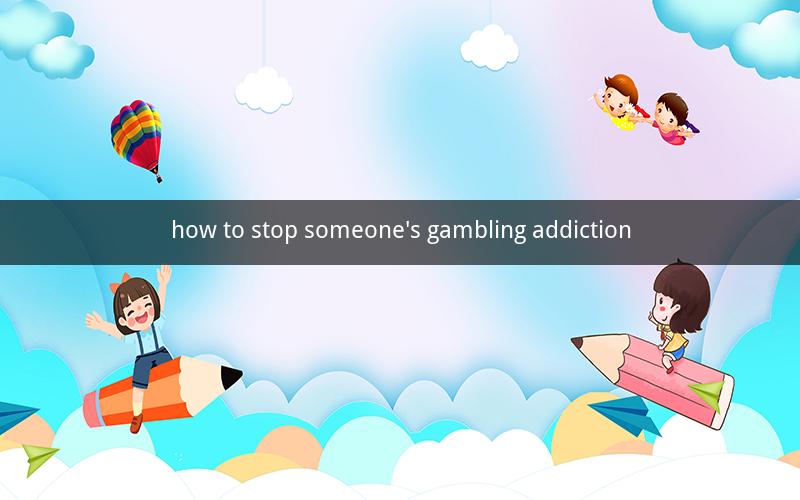
Table of Contents
1. Understanding the Problem
2. Identifying the Signs of Gambling Addiction
3. Encouraging the Addict to Seek Help
4. The Role of Support Systems
5. Therapeutic Interventions
6. Financial Management
7. Legal Considerations
8. Preventing Relapse
9. Aftercare and Long-Term Support
10. Case Studies
1. Understanding the Problem
Gambling addiction, also known as problem gambling or compulsive gambling, is a behavioral disorder characterized by an uncontrollable urge to gamble, despite negative consequences. It affects individuals of all ages, genders, and socioeconomic backgrounds. Understanding the problem is the first step towards addressing it effectively.
2. Identifying the Signs of Gambling Addiction
Recognizing the signs of gambling addiction is crucial for early intervention. These signs include:
- Preoccupation with gambling, including planning and thinking about gambling activities
- Needing to gamble more money to achieve the desired excitement or high
- Feelings of guilt, remorse, or frustration after gambling
- Trying to stop gambling but failing to do so
- Borrowing money or selling possessions to finance gambling
- Using gambling as a way to escape problems or relieve stress
3. Encouraging the Addict to Seek Help
Encouraging someone with a gambling addiction to seek help is essential. This can be done by:
- Expressing concern and empathy
- Educating them about the nature of the addiction
- Providing information about treatment options
- Offering to help them find a therapist or support group
4. The Role of Support Systems
Support systems play a crucial role in overcoming gambling addiction. These can include:
- Family and friends who are willing to offer emotional and practical support
- Support groups such as Gamblers Anonymous or Gam-Anon
- Professional therapists or counselors specializing in gambling addiction
5. Therapeutic Interventions
Therapeutic interventions are an integral part of treating gambling addiction. These may include:
- Cognitive-behavioral therapy (CBT) to address thoughts and behaviors associated with gambling
- Contingency management to provide incentives for staying away from gambling
- Family therapy to address the impact of the addiction on family members
6. Financial Management
Managing finances is essential in overcoming gambling addiction. This can be achieved by:
- Creating a budget to track income and expenses
- Selling non-essential items to pay off debts
- Seeking financial counseling to develop a plan for financial recovery
7. Legal Considerations
Gambling addiction may have legal implications, such as:
- Legal action taken by creditors
- Legal action taken by gambling establishments
- Legal action taken by the government, such as forfeiture of assets
8. Preventing Relapse
Preventing relapse is crucial in maintaining long-term recovery. This can be achieved by:
- Continuing to participate in support groups and therapy sessions
- Developing healthy coping mechanisms for stress and anxiety
- Avoiding triggers that may lead to gambling
9. Aftercare and Long-Term Support
Aftercare and long-term support are essential for maintaining recovery. This can include:
- Continuing therapy or counseling sessions
- Participating in support groups
- Engaging in activities that promote well-being and self-esteem
10. Case Studies
Case studies provide real-life examples of individuals who have overcome gambling addiction. These stories can be inspiring and offer hope to those struggling with the same problem.
Frequently Asked Questions and Answers
1. What causes gambling addiction?
Gambling addiction can be caused by a combination of factors, including genetics, environmental factors, and personal vulnerabilities.
2. How can I tell if someone I know has a gambling addiction?
Look for signs such as preoccupation with gambling, financial difficulties, and changes in behavior.
3. Can gambling addiction be cured?
While there is no cure for gambling addiction, it can be effectively managed through treatment and support.
4. Is there a genetic component to gambling addiction?
Yes, research has shown that there is a genetic component to gambling addiction, with a family history of addiction increasing the risk.
5. Can therapy help someone overcome gambling addiction?
Yes, therapy, such as cognitive-behavioral therapy, can be effective in treating gambling addiction.
6. How can I help someone with a gambling addiction?
Offer your support, encourage them to seek help, and be patient and understanding.
7. What is the most effective treatment for gambling addiction?
The most effective treatment depends on the individual's specific needs and circumstances. A combination of therapy, support groups, and financial management strategies may be beneficial.
8. Can someone recover from a gambling addiction without treatment?
It is possible for some individuals to recover without treatment, but seeking professional help can significantly improve the chances of long-term recovery.
9. How long does it take to overcome a gambling addiction?
The time it takes to overcome a gambling addiction varies from person to person. Some individuals may recover quickly, while others may require ongoing support and treatment.
10. Can gambling addiction be prevented?
While there is no sure way to prevent gambling addiction, being aware of the risks and taking steps to protect oneself from problem gambling can help reduce the likelihood of developing an addiction.